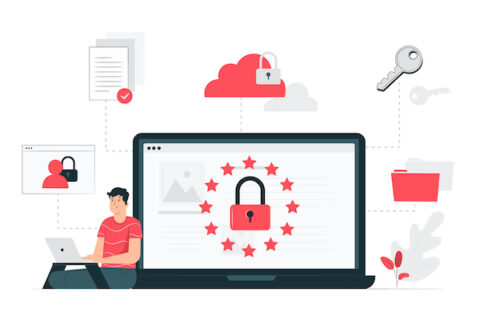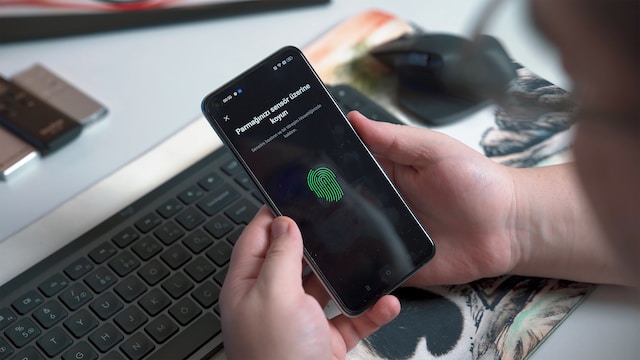Technology is advancing day by day, and it has a significant impact on our daily lives. In this digital age, people increasingly rely on technology and making data privacy crucial. In our daily lives, we use technologies constantly, resulting in the collection and storage of our personal information like online activities, shopping preferences, health records, and financial transactions. is collected and stored. This information is valuable and must be protected from potential misuse. Data privacy has gained considerable attention as we navigate the digital age, emphasizing the need to learn how to safeguard our information from cyberattacks and security breaches.
What is Data Privacy?
Data privacy is the process that involves proper handling of valuable data such as health records, and financial transactions. It marks the immutability, proper storage, access, and security of sensitive data guided by data protection laws and regulations. It values data ownership, permission, openness, and responsibility.
Benefits of Data Privacy in the Digital Age
Data privacy provides various benefits such as:
-
- Helping companies stay flexible.
- Building trust between companies and customers.
-
- Reducing the risk of fines and financial losses.
-
- Enhancing a firm’s reputation.
- Preventing fraud and cybercrimes.
- Saving time and money.
Data Collecting Parties/Who Collects Data?
Various entities collect data in the digital age, including
1. Companies and Organizations
Companies and organizations collect your data for various reasons like to understand their customers, improve products and services, and personalize user experiences.
2. Advertisers and Marketers
They collect data to create personalized advertisements and increase the effectiveness of their campaigns to understand customer demographics, interests, and behaviors.
3. Social Media Platforms
These platforms collect data for user engagement, deliver targeted content, and generate advertising revenue. Data like personal information, posts, and interactions are collected
4. Governments and Public Institutions
These institutions collect data to inform decision processes, resource allocation, and the development of public services providing public safety, national security, and policymaking.
5. Service Providers
These service provider companies collect data for service improvement, network optimization, and billing purposes.

Source: Freepik
Data Privacy Importance In The Digital Age
Data Privacy is essential in the Digital Age for the following reasons.
1. Protecting Personal Information
Personal Information is very important and that ensures your personal information such as health records, financial transactions, etc. very safely. Personal data in the wrong hands can cause various harm and can be used for identity theft, fraud, or other harmful activities. Further, Individuals could be harmed financially and personally.
2. Preserving Personal Privacy
For every person, personal privacy is crucial. It enables a person to decide how their data is gathered, utilized, and shared. It enables people to retain control over their personal information, ensuring that it is not used fraudulently without their consent.
3. Building Trust and Reputation
Data privacy plays a vital role in creating trust between organizations and individuals. Companies should focus on giving priority to protecting the personal information of an individual. As a result, they build a reputation for honesty and loyalty. Also, they can build a strong relationship with their customers.
4. Legal and Regulatory Compliance
By implementing data protection laws and regulations like the General Data Protection Regulation (GDPR) for organizations, one can protect individuals’ data privacy rights. Applying these laws and regulations helps organizations avoid legal outcomes and hefty fines keeping their reputation clean.
5. Ethical Data Practices
Everyone ought to uphold their ethical responsibilities to protect data privacy. Organizations should have the appropriate permission to gather, use, and share data the gathering, usage, and sharing of data, organizations should have the appropriate consent. By complying with ethical data practices, businesses should respect the rights of individuals to privacy and openness in their operations.
Best Practices For Protecting Data Privacy
i. Strong Passwords and Authentication
You should always use strong and unique passwords and two-way authentication to keep your accounts safe. These factors provide extra security to your accounts.
ii. Encryption
This method helps the data to remain unreadable and unusable even if data is intercepted. By enabling this method, you can protect your sensitive data.
iii. Regular Software Updates
It introduces you to the latest patches and bug spots which helps to keep your sensitive data safe. So, always keep your operating systems, software, and applications up to date.
iv. Privacy Settings
It helps to control the visibility and sharing of your personal information. You should understand privacy settings on social media platforms, web browsers, and other online services.
v. Phishing Awareness
Do not enter your personal information by clicking on any dodgy links. Always be on the lookout for phishing attempts because it could be damaging to your privacy.
Conclusion
Data Privacy has become a necessity in today’s digital age due to the increasing collection and sharing of personal information, leading to data breaches and cyber-attacks. So you have to apply precautions and make sure to pay significance to your data security requirements to protect your data from external harm. Businesses should focus on protecting the data to prevent threats and cyber attacks. According to experts of CDR Engineers Australia, understanding the importance of data privacy, such as protecting personal information, preserving individual autonomy, mitigating identity theft and fraud, safeguarding reputation, ensuring compliance with regulations, and following ethical considerations, contributes to creating a safer and more secure digital world.
GPWebsList is a Guest Posting Website search engine. People can submit guest posts on the website itself.
FAQ’s
1. Differentiate between Data Privacy and Data Protection?
Data Privacy focuses on users who have authorized access and Data Protection is focused on the protection of user assets from unauthorized use. Data Privacy is a legal matter and Data Protection is technical control.
2. What Are the Data protection laws and regulations that Covering Data Security?
-
- Health Insurance Portability and Accountability Act (HIPAA)
- Sarbanes-Oxley (SOX)
-
- General Data Protection Regulation (GDPR)
3. Tell some examples of personal and sensitive data
-
- Names
- Addresses
-
- social security number
-
- credit card information,
- financial records,
- trade secrets
4. What are the emerging technologies or trends that impact data privacy?
-
- Artificial intelligence (AI)
- Internet of Things (IoT),
-
- and Facial recognition
5. What is Phishing?
Phishing is a type of cyberattack that targets an individual from a legal and estimable source through email, text messages, phone calls, and other forms of communication. It manipulates an individual to fall into the attacker’s desired action.













